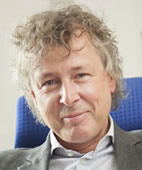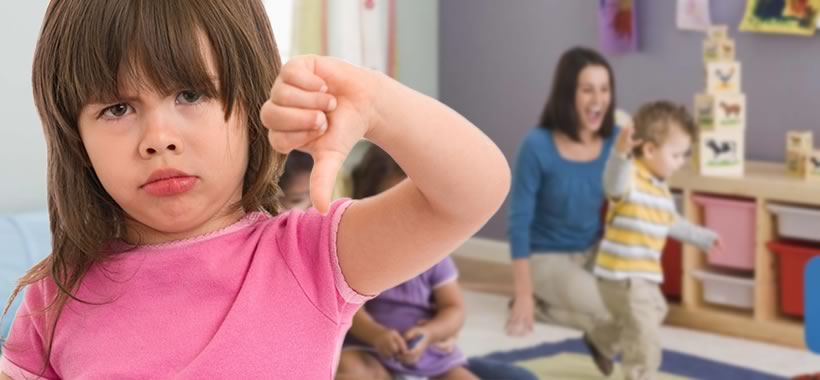Ergotherapy and psychotherapy, language training and physiotherapy – our boys and girls are increasingly prescribed therapies. When do children really need them??
He has washed his hands at least ten times in the past three hours, as thoroughly as a surgeon before the operation. Jonas of all people! The five-year-old was anything but a hygienist until four weeks ago. First signs of OCD? Three-year-old Lina from the same group of children in Frankfurt stutters. Fast to speech therapist? And Max (4) has only been leaving the house in Batman costume for a few days. When it is cold, the black cloak dangles over his down jacket. Somehow not quite normal, says his mother.
Parents are more insecure today than they used to be
The line between funny and striking seems narrow. Some of the little one’s habits make parents nervous. What if the oddities affect children’s development? How long can parents wait before taking action?? "Mothers and fathers are definitely more insecure today than they used to be", says Professor Harald Bode, former director of the Social Pediatric Center at the Ulm University Hospital.

Result: a lot of therapies
The result: Some children have their first speech therapist, physiotherapist, psychologist or occupational therapist even before the first wheel. If a baby does not crawl in time, physiotherapy occurs. Because a three-year-old does not paint well enough, the occupational therapist should help. Analyzes of health insurance data show that doctors have been prescribing therapy to children for years.
The number of diagnosed developmental disorders in children between the ages of five and seven has increased by 26.5 percent in the past ten years, according to the 2018 AOK report on medicinal products. Not everyone was prescribed appropriate treatment, which, according to the report, speaks for a careful consideration of the doctors. In 2017, 16.9 percent of AOK-insured children between the ages of five and seven received therapeutic treatment for a developmental disorder. The share of prescriptions was significantly higher in the years 2011 to 2015 at up to 17.9 percent and has since declined.
However, on average the children received 24.6 treatments per patient. This value is above the average of 21.3 treatments of all AOK insured. In the report, the experts from the AOK Scientific Institute urge the children not to put too much time into their work.

The demands on children are extremely high
Logical: Some problems do not go away on their own – and then it is good if parents, doctors and therapists intervene in good time. And of course all mothers and fathers want for their offspring the best Starting opportunities. Just: "The social demands on children are extremely high today", says child and adolescent psychiatrist Dr. Ingo Spitczok von Brisinski from the LVR clinic Viersen. "Today adults try to get the best out of all children as early as possible."
He says sentences that parents would probably prefer not to hear: "Children don’t become perfect just because we treat them perfectly." And: "It is completely normal for not all children to perform well and study later. We are not all the same."

Anomalies often grow out
Nevertheless, it is questionable: 33 percent of children in school entry examinations are considered conspicuous. Linguistic weaknesses, behavioral problems and motor inexperience catch the eye of school doctors. With Lina, Max and Jonas the investigators might have asked for more details and possibly made a note on the sheet. But Spitczok von Brisinski calms: "Not every child who does not meet the norm in this test needs to be treated." He therefore advises serenity. And then he says a sentence that parents will love: "A lot grows out."
So wait and see. Breathe. But how long? "If it’s not something that’s dangerous, you can watch it for half a year", said Spitczok from Brisinski. "Parents often also feel comfortable when compared to others", explains pediatrician Bode. Going for a walk with a real Batman is plenty to talk about on the street, but at first there is no reason to get nervous. Especially not if you spotted the neighboring picks as piggy pink Lillifee. "In old age, children often still have magical thinking and omnipotence fantasies, which usually disappear again", explains Professor Stephan Bender, Director of the Clinic for Psychiatry, Psychosomatics and Psychotherapy of Childhood and Adolescence at Cologne University Hospital.
Treat serious disorders early
Is my child just a little shy – or almost autistic? Is it too lively – or does it have an attention disorder? This limit is often difficult to recognize for laypeople. "Especially when it comes to deep developmental disorders, you shouldn’t waste time", says Spitczok from Brisinski. This includes, for example, autism. Even serious behavioral problems must be treated. "Such mental disorders have a fatal effect on development. The earlier you start therapy, the better the outlook", says Bender. "But real neuropsychiatric problems, such as ADHD, affect only a few Percent of children." In the majority of cases, parents and pediatricians can watch the little thing first. In the future, the pediatricians want to specifically ask for abnormalities and alarm signs of psychiatric illnesses in the preventive examinations. It is not yet clear when this will be implemented across the board.
Parents can promote language development themselves
Language abnormalities such as stuttering "often play back", says Bode. In the preventive examinations, pediatricians pay attention to how the language develops. This is important because deficits have disadvantages in many ways: at school, in contact with others, for self-esteem. If a two-or three-year-old’s medical check-up reveals that he or she has not yet reached the usual language level, parents can initially develop their skills in a relaxed manner: for example, by speaking a lot to their child and reading to them. There is no evidence that an otherwise healthy child with delayed language development at this age will benefit from speech therapy, says Bode.
Occupational therapy is prescribed too often
Ingo Spitczok von Brisinski believes that occupational therapy is prescribed too often: "The effectiveness of this therapy has not been proven for many abnormalities." And the best occupational therapy is of no use to a four-year-old who simply does not like painting. "Is a child striking would everyone Anyway, pediatrician immediately prescribe the appropriate measures", says child neurologist Harald Bode. He advises mothers and fathers from time to time to take a different look at the small imperfections of the offspring: According to Bode, one can, "also look forward to a child with rough edges".
That pays the health insurance
- psychotherapies: Psychoanalytic and deep psychological therapies are suitable for all possible disorders, such as anxiety, eating disorders, behavioral problems, but more for older children and adolescents. Behavioral therapies are also a health insurance benefit that show good results even for the smaller ones. The psychologist or psychiatrist applies to the health insurer to cover the costs.
- physical therapy: The treatment is suitable for many disorders of physical, mental and emotional development, such as problems with learning to walk or muscle disorders. The health insurers pay when a doctor prescribes the therapy.
- occupational Therapy: Here, small patients practice behaviors that enable them to cope with everyday life more easily. Different senses are often stimulated. For example, developmental delays and motor disorders can be treated. Occupational therapy is also paid for by the health insurance if the doctor prescribes it.
- speech therapy: Train oral motor skills, pronounce words better, stop stuttering: The therapy is suitable for speech, voice and swallowing disorders. If parents then practice with the children, the chances of success are very good. The health insurers undertake the therapy according to a doctor’s prescription.
Also read:

Speech disorder: when is therapy necessary??
Lispel, stuttering, selective mutism – more and more children have speech disorders and receive speech therapy. The Munich pediatric audiologist Dr. explains Barbara Arnold
RELATED ITEMS
-

Language training: when is therapy necessary? Baby and family
Lispel, stuttering, selective mutism – more and more children have speech disorders and receive speech therapy. The Munich explains the background…
-

When should the child see a specialist? Baby and family
In addition to the pediatrician, ear, eye or dentist care for small patients. When does the examination at the specialist make sense? Also…
-

Migrate in children: what helps against it – baby and family
Children also suffer from migraine attacks: stress can trigger headaches. How parents can help their little ones This video explains…
-

What if the child doesn’t want to go to daycare? Baby and family
Yesterday the child happily went to crèche or kindergarten, today there is protest and roar. What is behind it? Today: thumbs down for that…
